 W
WDaniel Adam z Veleslavína, literally translated Daniel Adam of Veleslavín,, was a Czech lexicographer, publisher, translator, and writer.
 W
WKarel Slavoj Amerling was a Czech teacher, writer, and philosopher.
 W
WMilan Balabán was a Czech theologian, professor of religion and the Old Testament, Evangelical Church of Czech Brethren (ECCB) pastor, and poet. Balabán, an anti-communist dissident during Czechoslovakia's communist era, was a Charter 77 signatory. He was also among of group of Czech Old Testament scholars who wrote and translated the Old Testament theologians the Czech Ecumenical Translation of the Bible, which remains the most widely used Czech language translation of the Bible today.
 W
WBohuslav Balbín was a Czech writer, historian, geographer and Jesuit, called the "Czech Pliny". He became well known also as an advocate of the Czech language in the time of incoming germanization of the Czech lands.
 W
WVáclav Bělohradský is a Czech philosopher and sociologist.
 W
WVáclav Benda was a Czech Roman Catholic activist and intellectual, and mathematician. Under Communist rule in Czechoslovakia, Benda was rare in being a believing Christian while also a senior member of the anti-communist dissident organization Charter 77. After the Velvet Revolution, Benda became the head of an organization charged with investigating the former Communist secret police and their informants.
 W
WBernard Bolzano was a Bohemian mathematician, logician, philosopher, theologian and Catholic priest of Italian extraction, also known for his liberal views.
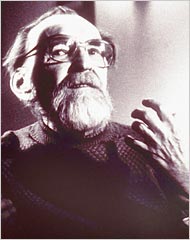 W
WEgon Bondy, born Zbyněk Fišer, was a Czech philosopher, writer, and poet, one of the leading personalities of the Prague underground.
 W
WVáclav Černý, PhD., was a Czech literary scientist, writer and philosopher. He was an enthusiast of Spanish literature and philosophy and translated into Czech a number of literary and philosophical works by Spanish authors as Ortega y Gasset, Unamuno and Cervantes.
 W
WJohn Amos Comenius was a Czech philosopher, pedagogue and theologian from the Margraviate of Moravia who is considered the father of modern education. He served as the last bishop of the Unity of the Brethren before becoming a religious refugee and one of the earliest champions of universal education, a concept eventually set forth in his book Didactica Magna. As an educator and theologian, he led schools and advised governments across Protestant Europe through the middle of the seventeenth century.
 W
WErnest André Gellner was a British-Czech philosopher and social anthropologist described by The Daily Telegraph, when he died, as one of the world's most vigorous intellectuals, and by The Independent as a "one-man crusader for critical rationalism".
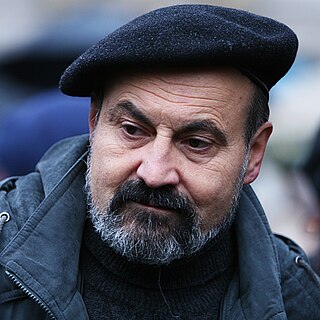 W
WTomáš Halík is a Czech Roman Catholic priest, philosopher, and theologian. He is a professor of Sociology at the Charles University in Prague, pastor of the Academic Parish by St. Salvator Church in Prague, and president of the Czech Christian Academy. Since 1989, he has lectured at a number of universities and international scientific conferences in Europe, the United States, Asia, Australia, Canada, and Southern Africa. He was also a visiting professor at Oxford University, Cambridge University and Harvard University.
 W
WIgnác Jan Hanuš or, in German, Ignaz Johann Hanusch was a Czech philosopher, librarian and expert on Slavic mythology.
 W
WLadislav Hejdánek was a Czech philosopher and a proponent of Charter 77. He was born in Prague and graduated from the Charles University in Prague. In 1952 he attained a degree in philosophy with his dissertation "Truth and its ontological premises". From 1956 to 1968 he worked at the Prague Institute of Epidemiology and Microbiology. Then he took a position at the Institute for Philosophy of the Czechoslovak Academy of Sciences, but was expelled in 1971.
 W
WOtakar Hostinský was a Czech historian, musicologist, and professor of musical aesthetics. He is known primarily for his support of composer Bedřich Smetana and his contributions to Czech aesthetic theory, which influenced many cultural figures in early twentieth-century Prague, including Zdeněk Nejedlý, Otakar Zich, and Vladimír Helfert. He also wrote the opera librettos to Zdeněk Fibich's masterpiece, The Bride of Messina, and Josef Rozkošný's Cinderella.
 W
WJan Hus, sometimes anglicized as John Hus or John Huss, and referred to in historical texts as Iohannes Hus or Johannes Huss, was a Czech theologian and philosopher who became a church reformer and an inspirer of Hussitism, a key predecessor to Protestantism and a seminal figure in the Bohemian Reformation. After John Wycliffe, the theorist of ecclesiastical reform, Hus is considered the second church reformer, as he lived before Luther, Calvin and Zwingli. His teachings had a strong influence on the states of Western Europe, most immediately in the approval of a reformed Bohemian religious denomination and, over a century later, on Martin Luther. Hus was a master, dean, and rector at the Charles University in Prague.
 W
WJan z Jenštejna, German: Johann II. von Jenstein, Johannes VI. von Jenstein. Johann von Jenzenstein, Johann von Genzenstein was the Archbishop of Prague from 1379 to 1396. He studied in Bologna, Padova, Montpellier and Paris. He was also a poet, writer and composer.
 W
WJerome of Prague was a Czech scholastic philosopher, theologian, reformer, and professor. Jerome was one of the chief followers of Jan Hus and was burned for heresy at the Council of Constance.
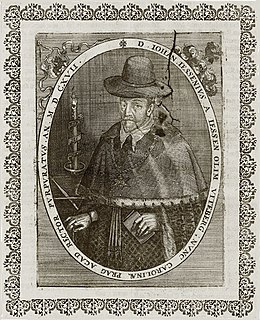 W
WJan Jesenius, also written as Jessenius, was a Bohemian physician, politician and philosopher.
 W
WFrantišek Matouš Klácel was a Czech author, philosopher, pedagogue, and journalist from Bohemia. Since 1827 an Augustinian friar in Moravian town Brno, co-brother of Gregor Mendel.
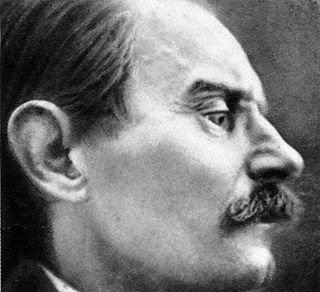 W
WLadislav Klíma, was a Czech philosopher and novelist influenced by George Berkeley, Schopenhauer and Nietzsche. His philosophy is referred to varyingly as existentialism and subjective idealism.
 W
WErazim Kohák was Czech philosopher and writer. His early education was in Prague. After communists took over Czechoslovakia in 1948, his family escaped to the United States. He died in February 2020 at the age of 86.
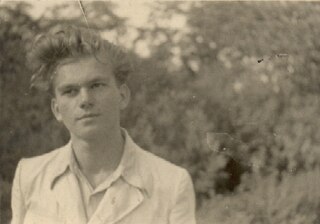 W
WKarel Kosík was a Czech Marxist philosopher. In his most famous philosophical work, Dialectics of the Concrete (1963), Kosík presents an original reinterpretation of the ideas of Karl Marx in light of Martin Heidegger's phenomenology. His later essays can be called a sharp critique of the modern society from a leftist but not strictly Marxist position.
 W
WHerbert Thomas Mandl was a Czechoslovak-German-Jewish author, concert violinist, professor of music, philosopher, inventor and lecturer. He authored novels, stories and dramas that are inspired by the extraordinary events of his life.
 W
WFrantišek Mareš was a Czechoslovak professor of physiology and philosophy, and nationalist politician. He was rector of the Charles University in 1920-21, and member of the National Democrats.
 W
WTomáš Garrigue Masaryk, sometimes anglicised Thomas Masaryk, was a Czechoslovak politician, statesman, sociologist and philosopher. Until 1914, he advocated restructuring the Austro-Hungarian Empire into a federal state. With the help of the Allied Powers, Masaryk gained independence for a Czechoslovak Republic as World War I ended in 1918. He co-founded Czechoslovakia together with Milan Rastislav Štefánik and Edvard Beneš and served as its first president, and so is called by some Czechs the "President Liberator" (Czech: Prezident Osvoboditel).
 W
WZdeněk Neubauer was a Czech philosopher and biologist, remarkable especially for original interpretations in science history and epistemology.
 W
WPeter Nigri, known also as Peter George Niger, was a Dominican theologian, preacher and controversialist.
 W
WFrantišek Palacký was a Czech historian and politician, the most influential person of the Czech National Revival, called "Father of the Nation".
 W
WJan Patočka was a Czech philosopher. Having studied in Prague, Paris, Berlin and Freiburg, he was one of the last pupils of Edmund Husserl and Martin Heidegger. During his studies in Freiburg he was also tutored by Eugen Fink, a relationship which eventually turned into a lifelong philosophical friendship.
 W
WEmanuel Rádl was an original Czech biologist, historian of science, philosopher and a critical supporter of Masaryk´s pre-war democratic Czechoslovakia. He earned international renown by his works on the evolution of neural system and as historian of evolution theories.
 W
WRadovan Richta was a Czech philosopher who coined the term technological evolution; a theory about how societies diminish physical labour by increasing mental labour. Richta was born in Prague.
 W
WJohn of Rokycany, also known as Jan of Rokycany, in Czech language Jan Rokycana, and Jan z Rokycan was a Czech Hussite theologian in the Kingdom of Bohemia and a key figure of the Bohemian Reformation.
 W
WKarel Sabina was a Czech writer and journalist.
 W
WJan Sokol is a Czech philosopher, former dissident, politician and translator. He briefly served as Minister of Education, Youth and Sports in 1998 under Prime Minister Josef Tošovský. From 1990 to 1992 he was Member of Parliament for Prague. From 2000 to 2007 he served as the first dean of the Faculty of Humanities at Charles University in Prague. Sokol ran for President of the Czech Republic in the 2003 election but lost to Václav Klaus.
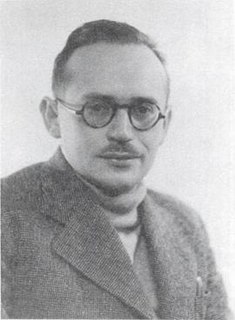 W
WFranz Baermann Steiner was an ethnologist, polymath, essayist, aphorist, and poet. He was familiar, apart from German, Yiddish, Czech, Greek and Latin, with both classical and modern Arabic, Hebrew, Turkish, Armenian, Persian, Malay, English, French, Spanish, Italian, Russian, six other Slavic languages, Scandinavian languages and Dutch.
 W
WTomáš Štítný ze Štítného was a Czech nobleman, writer, theologian, translator, and Christian preacher. He was one of the leading figures of the early Czech Reformation, writing and translating Christian tracts for the benefit of the nobility, to assist in wise governance. The Klementinum Codex, a major work, is a collection of some of the essentials necessary for Christian practice and the needs of daily life. He also wrote parables for ordinary people and works purely for entertainment. There is a bronze bust of Tomas Stitny in the pantheon of the National Museum of Prague.
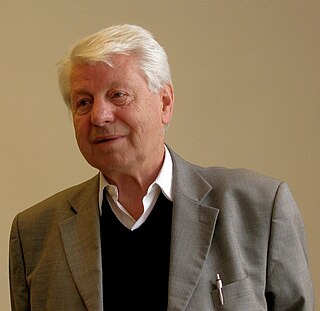 W
WPetr Vopěnka was a Czech mathematician. In the early seventies, he developed alternative set theory, which he subsequently developed in a series of articles and monographs. Vopěnka’s name is associated with many mathematical achievements, including Vopěnka's principle. Since the mid-eighties he concerned himself with philosophical questions of mathematics.
 W
WFelix Weltsch, was a German-speaking Jewish librarian, philosopher, author, editor, publisher and journalist. A close friend of Max Brod, Ludwig Winder and Franz Kafka, he was one of the most important Zionists in Bohemia.